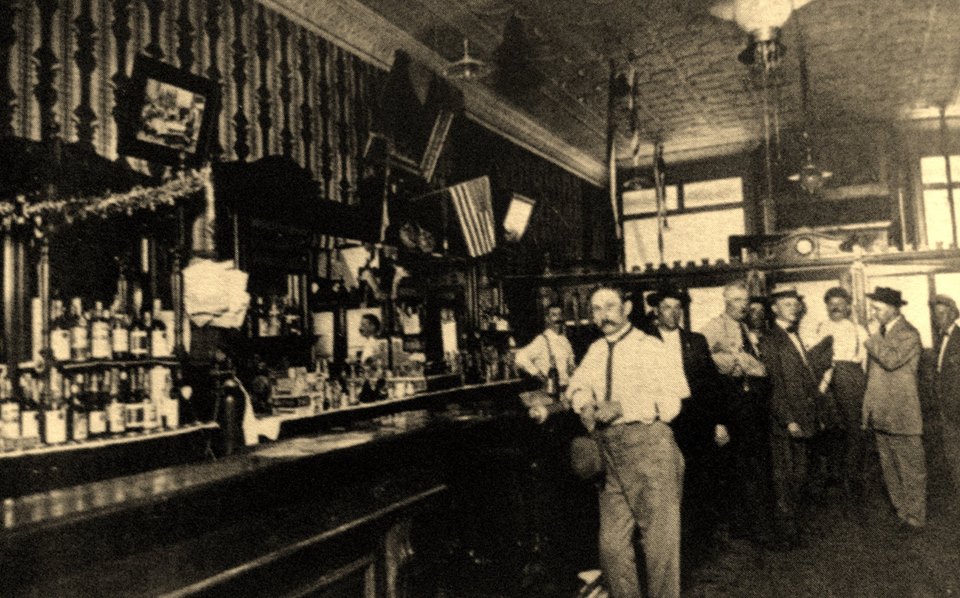January 17 has been proclaimed as National Bootleggers Day. This date marks the birthdays of Templeton Rye Whiskey, bootlegger Al Capone, and the son of another bootlegger, Meryl Kerkhoff.

Alpena’s John A. Lau Saloon in 1895
The term bootlegger began in the Midwest in the 1880s when one would shove flasks of liquor in their boot tops when going to trade with Native Americans.
In Alpena’s earliest years no one in town could openly sell whiskey, but there were ways to find it if you wanted it. A drink or two could easily be acquired for the right amount of money and you would then be directed to a certain location in the woods in search of a hidden bottle. So-called “medicines” such a Wahoo Bitters and Sam’s Fighting Cider also could be easily purchased from the local druggist. Before too long, saloons began popping up all over town, and by 1904 there were 34 saloons in Alpena!

Homemade Moonshine
The year of 1918 brought in Prohibition, and by 1920 Alpena’s breweries and saloons were gone….. at least from the public eye. The area was awash with booze; home brew, bathtub gin, Blind Pigs, Rum Runners, Bootleggers, and illegal gambling machines. These secret drinking establishments were everywhere. It was during this time that Posen was known as the “Moonshine Center”. The spirits made by Posen farmers was known to be of a “highly agreeable quality”. All of the operations were consistently and persistently raided by the local and state law officers, but they thrived nevertheless.
In 1933, Alpena native and Michigan Governor William B. Comstock signed the Wilkowski Bill, making Michigan the first state to bring alcohol legally back after 15 years.
Sources:Robert Haltiner; “Alpena Gleanings and Stones from her Granite Gardens”, “The Town That Wouldn’t Die”, “The Town in Bits and Pieces”
NationalCalenderDay.com





 420 N. 2nd Ave. Alpena, MI 49707
420 N. 2nd Ave. Alpena, MI 49707 989-340-2288
989-340-2288 